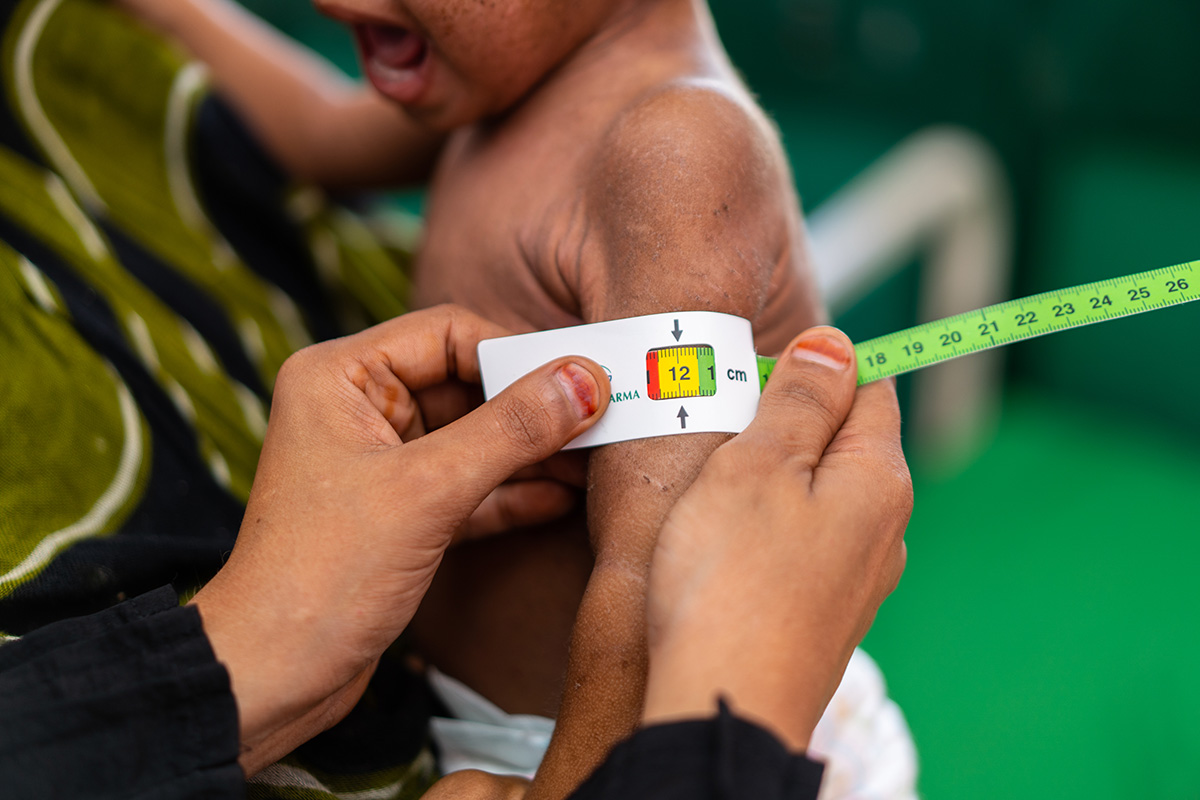 01 June 2025 – The World Health Organization (WHO), in partnership with the Government of the United Arab Emirates through the Khalifa bin Zayed Al Nahyan Foundation for Humanitarian Work (an affiliate of Erth Zayed Philanthropies), and in close coordination with Yemen’s Ministry of Public Health and Population (MoPHP), has launched a comprehensive programme to combat malnutrition in Socotra, a Yemeni island in the Indian Ocean.
01 June 2025 – The World Health Organization (WHO), in partnership with the Government of the United Arab Emirates through the Khalifa bin Zayed Al Nahyan Foundation for Humanitarian Work (an affiliate of Erth Zayed Philanthropies), and in close coordination with Yemen’s Ministry of Public Health and Population (MoPHP), has launched a comprehensive programme to combat malnutrition in Socotra, a Yemeni island in the Indian Ocean.
Socotra is facing malnutrition challenges driven by food insecurity, as well as repeated outbreaks of cholera, measles and dengue fever. Health and nutrition services are critically under-resourced, placing children under 5 and pregnant and lactating women at extreme risk of preventable illness and death.
The island’s more than 83 000 residents are served by 32 health facilities which are under immense strain. It lacks a central public health laboratory, a functional drug warehouse and a medical prepositioning system, all of which are essential for timely emergency response and sustainable health care delivery.
The fragile health system suffers from a lack of skilled health personnel, essential medicines and emergency readiness mechanisms. Maternal health indicators are alarming, with 92.7% of pregnant women anemic and antenatal care attendance low. Around 37% of children have yet to receive a single vaccine dose. The global acute malnutrition (GAM) rate stands at 10.9% and the severe acute malnutrition (SAM) rate at 1.6%, indicating a serious public health emergency.
“This programme reflects a joint commitment by WHO and the UAE to improving the health and well-being of vulnerable populations, particularly mothers and children, while reinforcing healthcare systems in crisis-affected areas. In partnership with national authorities, we are working to create more resilient, equitable, and responsive health services for the people of Socotra, establishing a foundation for long-term health security on the island and contributing to a stronger and healthier Yemen,” said Acting WHO Representative in Yemen Dr Ferima Coulibaly-Zerbo.
The initiative began with a baseline health and nutrition survey conducted between 24 and 30 May 2025. Over the next two, years the project aims to reduce mortality related to poor health and malnutrition by 20% through an integrated health system strengthening approach. The project aims to:
enhance maternal and child health service coverage in 80% of health facilities within the next 24 months;
strengthen outbreak preparedness and disaster risk reduction by equipping health care facilities and build staff capacity so they can respond effectively to epidemic-prone diseases and cyclone-related emergencies;
establish a multisectoral health and nutrition coordination platform that enables quarterly strategic planning meetings between WHO, UAE, MoPHP and partners;
generate real-time evidence-based data through the baseline health and nutrition survey conducted between 24 and 30 May 2025; and
strengthen routine health information reporting/ system to track progress on service utilization, morbidity and mortality.
“H.E. Mohamed Haji Al Khouri, Director General of the Khalifa Bin Zayed Al Nahyan Foundation for Humanitarian Work, stressed the UAE’s humanitarian and global responsibility to develop communities and enhance critical health services. “This stems from the enduring humanitarian legacy of the late Sheikh Zayed bin Sultan Al Nahyan and the leadership of His Highness Sheikh Mohamed bin Zayed Al Nahyan, President of the UAE. We are determined to effectively address food and health challenges faced by women and children in Socotra, in collaboration with the WHO,” he said.
Al Khouri explained that the Khalifa Foundation, an affiliate of Erth Zayed Philanthropies, would work with the WHO to develop appropriate solutions to nutritional and health challenges using a new survey based on current data. “The joint initiative aims to reduce maternal and child mortality caused by malnutrition through a comprehensive plan of action. This will enhance maternal, infant, and child care services, and improve emergency preparedness and response to epidemics,” he added.“
For media inquiries, please contact:
WHO Yemen Communications Team
Email:
This e-mail address is being protected from spambots. You need JavaScript enabled to view it
About WHO
Since 1948, the World Health Organization (WHO) has been the United Nations agency dedicated to advancing health for all, so that everyone, everywhere can attain the highest level of health. WHO leads global efforts to expand universal health coverage, direct and coordinate the world’s responses to health emergencies and connect nations, partners and people to promote health, keep the world safe and serve the vulnerable.



